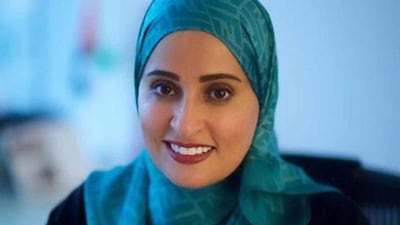When the Government reshuffle took place earlier this month, two new ministerial positions really struck a chord with me: the Minister of State for Happiness and Minister of State for Tolerance. With posts for happiness and tolerance, our leadership is making it clear that Emirati values include protecting and promoting the well-being of citizens, along with cultural and religious understanding within the community.
While I believe these things to be essential in any society and I am comforted to know that they are being brought to the front lines, I am unsure how these new positions will manifest themselves in practice and what the responsibilities of each minister will entail.
Tolerance is easier to define. It is generally thought of as the “ability or willingness to tolerate the existence of opinions or behaviour that one dislikes or disagrees with”. Considering the fanaticism of extremists such as ISIL and the growing Islamophobia in Europe and the United States, it has become even more important for us to reassert the fact that we will not stand for any form of xenophobia.
But I think that we could go a step further than just preventing intolerance, we could actively be pushing for increased understanding and dialogue. For instance, we should confront the fact that our own society can be unforgiving towards someone who does things differently. Therefore, we need to be more attentive to accepting people’s various lifestyles and values, and be better about not passing judgement on each other.
While there is more clarity on what the ministry of tolerance could do – for example, the anti-discrimination law passed last year that criminalised discrimination on the grounds of religion, caste, creed, doctrine, race, colour or ethnic origin – the issue of institutionalising happiness is a lot more complex.
Since the earliest days philosophers have concerned themselves with defining the nature of happiness. They have asked: what is actually meant by the word happiness and what is it that makes us truly happy?
Despite the variety of biological, psychological, religious and philosophical approaches that have attempted to define happiness and identify its sources, no consensus has been reached. No one has been able to definitely answer whether happiness is subjective or objective, or whether it is a sensation evident at a single moment in time, or rather in the quality of an entire life. No one has even agreed on whether everyone should pursue happiness. Yet we all strive towards it or understand it to be a desired state of being.
Aristotle suggested that “it is for the sake of happiness, that we all do everything else we do”. Basically, happiness is equivalent to a worthwhile life and it is what motivates much of our actions. This is why I find it so important to realise that happiness is different for everyone and we need to take that into consideration.
I find it worthwhile to think about how micro or macro the scope of these ministerial positions will be. According to many studies, the sedentary nature of our work and life is making us unhappy by having a negative impact on our health and well-being. An overwhelming number of people suffer from work-related stress that takes a toll on their minds and bodies. This is a crucial issue that needs to be addressed with more work-flexibility or decreased work hours. Yet, there are other people who take great comfort in work and might not benefit from any initiatives addressing work-life balance.
Before we can embark on a journey to spread happiness and tolerance, we need to examine the current state of those two elements in society. If these are going to be new priorities, we need to understand how happy or tolerant Emirati society currently considers itself and what – if any– are the issues that people believe are getting in the way of reaching these goals. Only then can we really start to make strides in the right direction.
Fatima Al Shamsi is a globetrotting Emirati foodie, film buff and football fanatic

